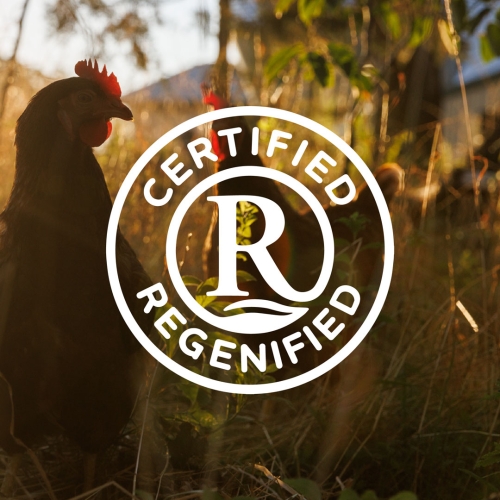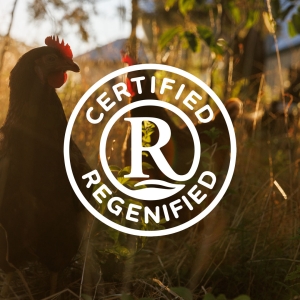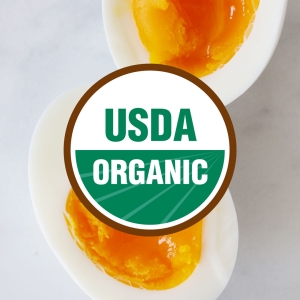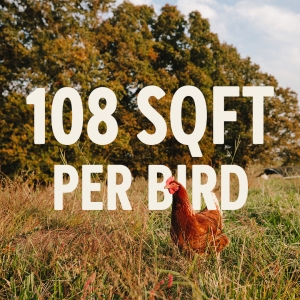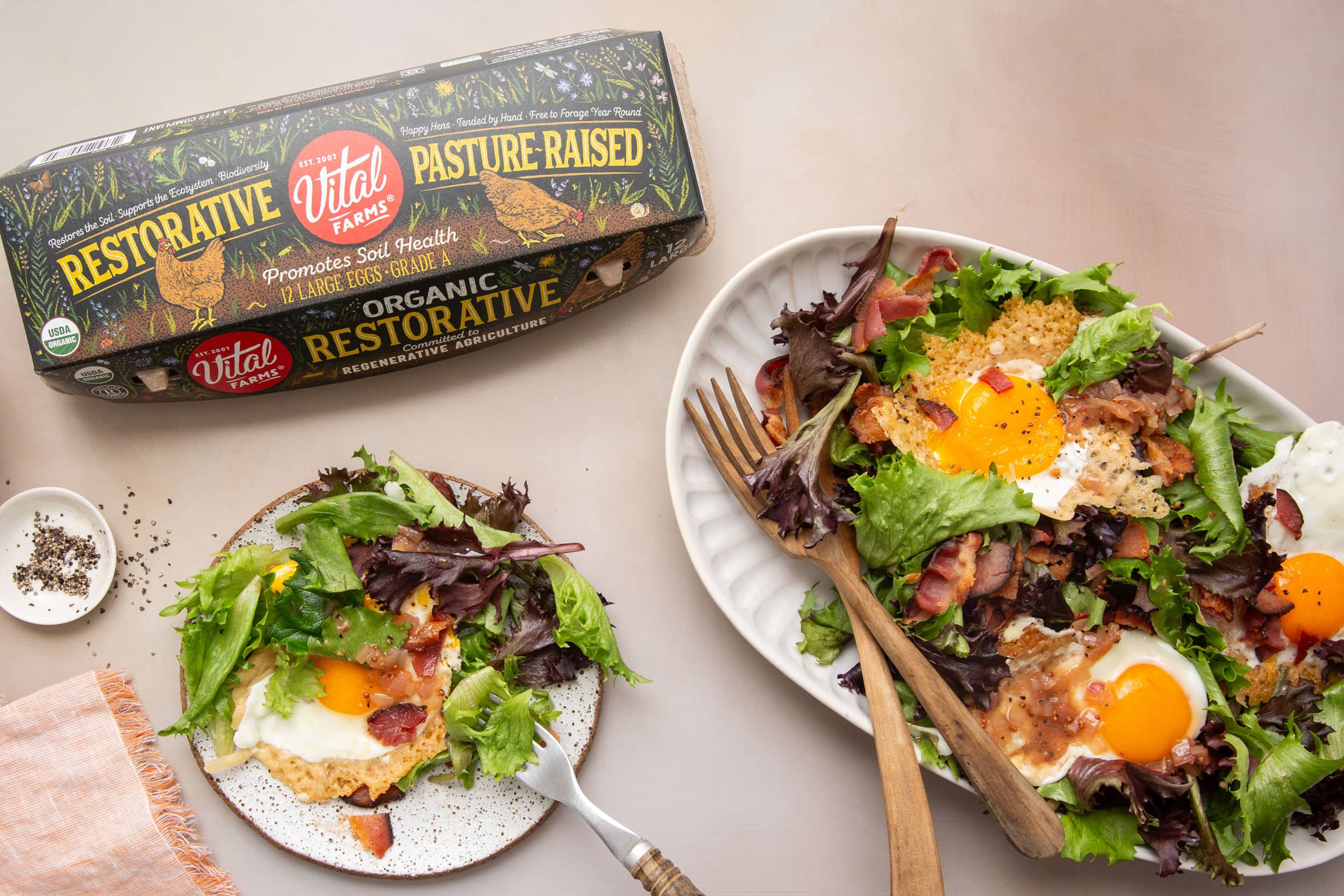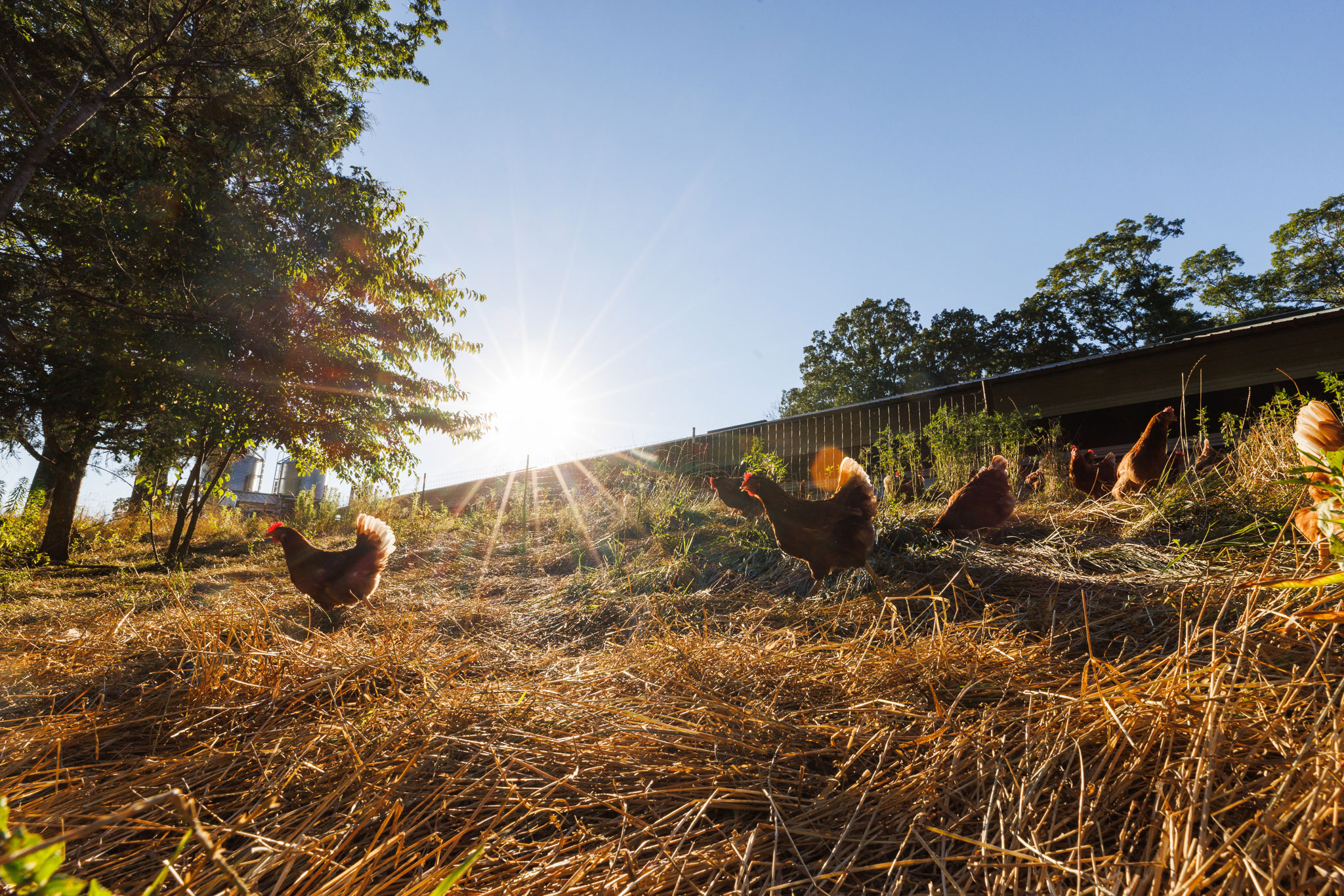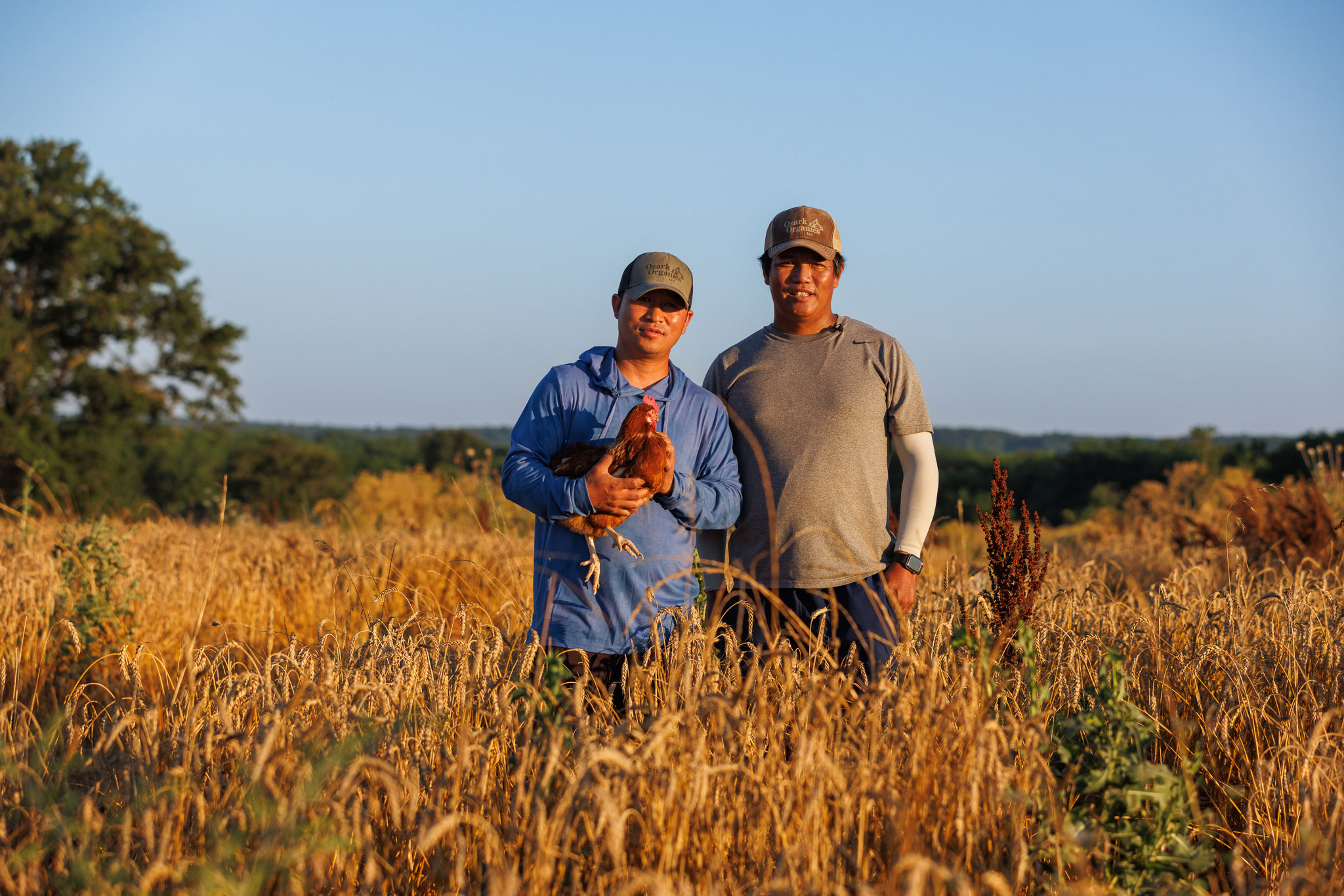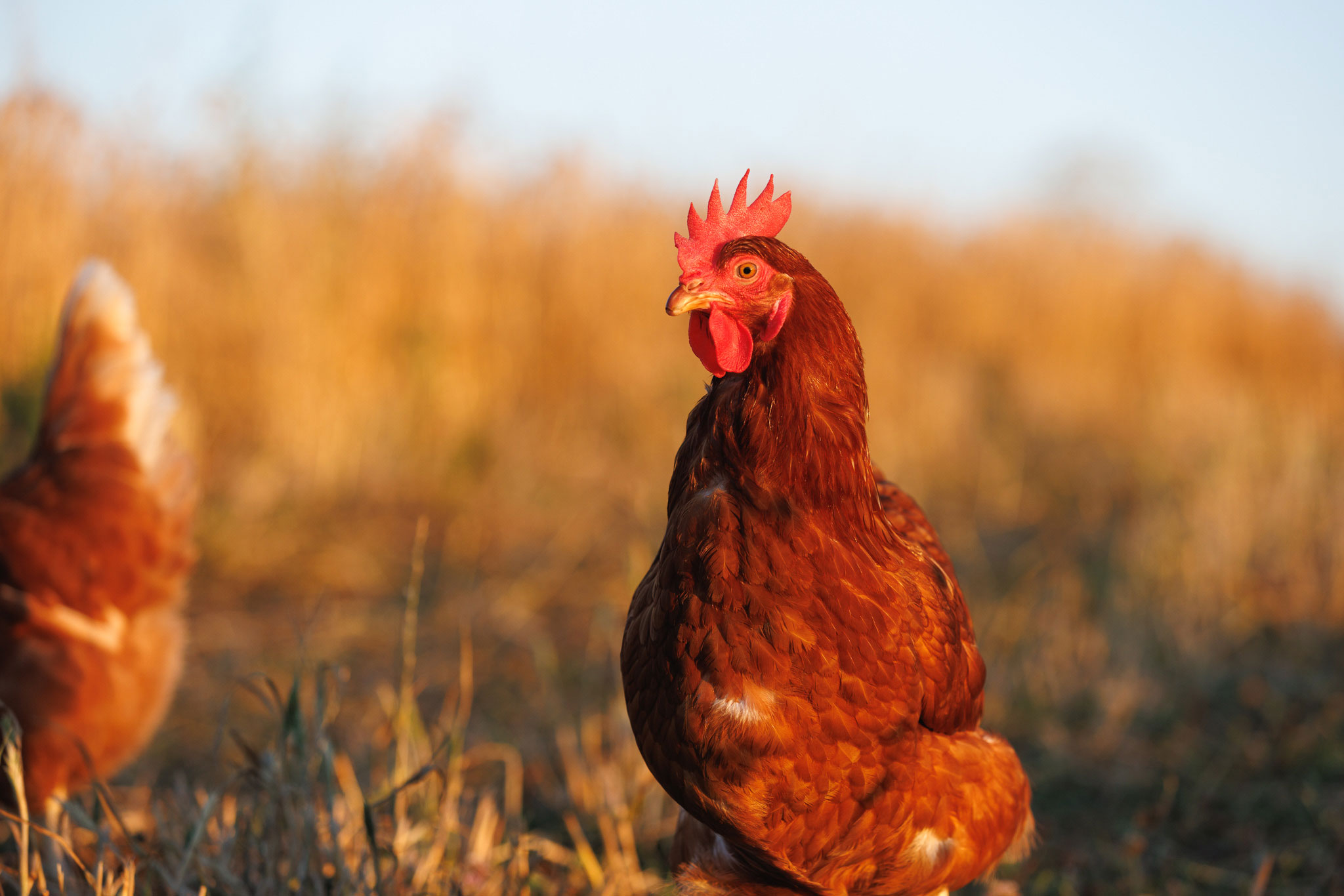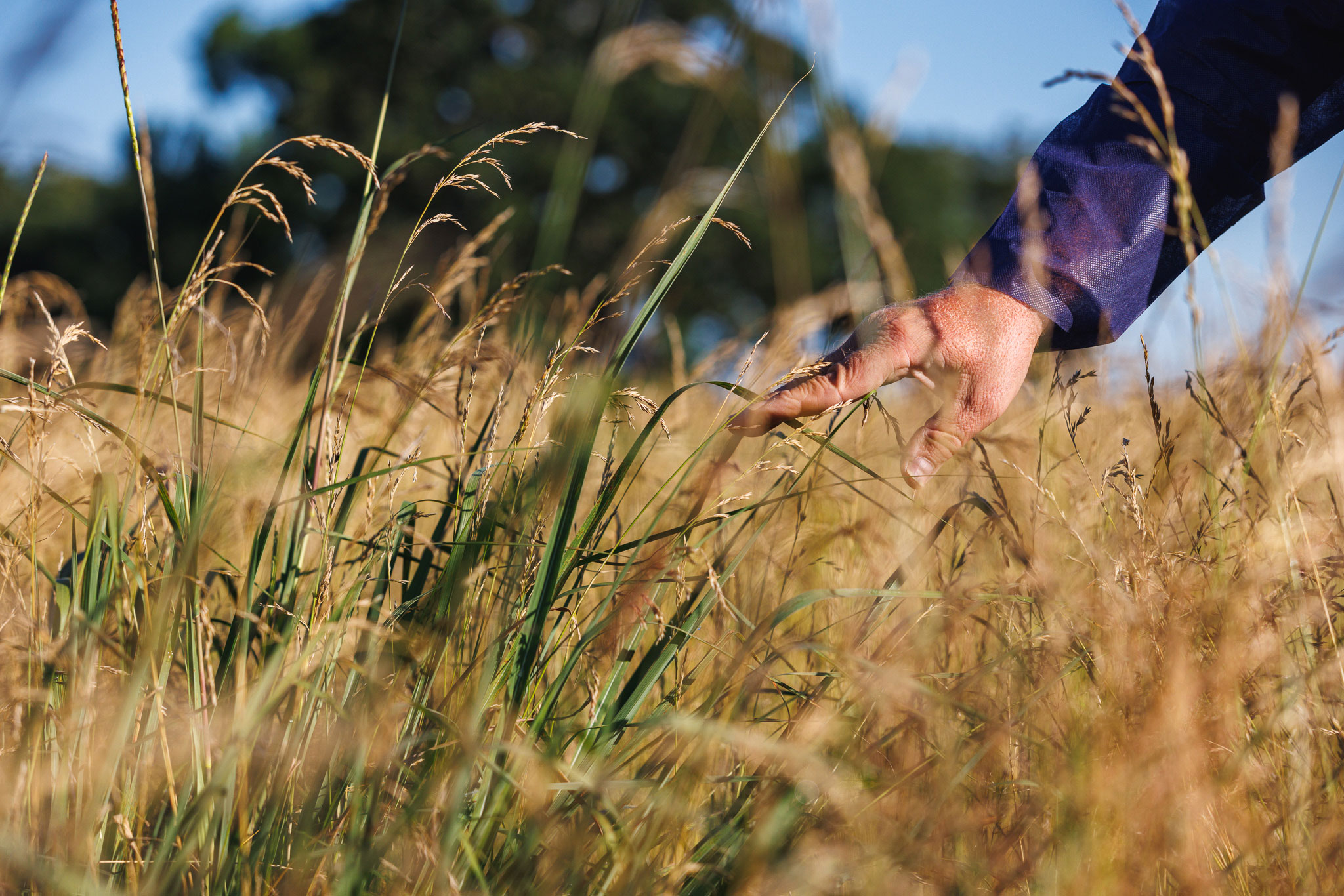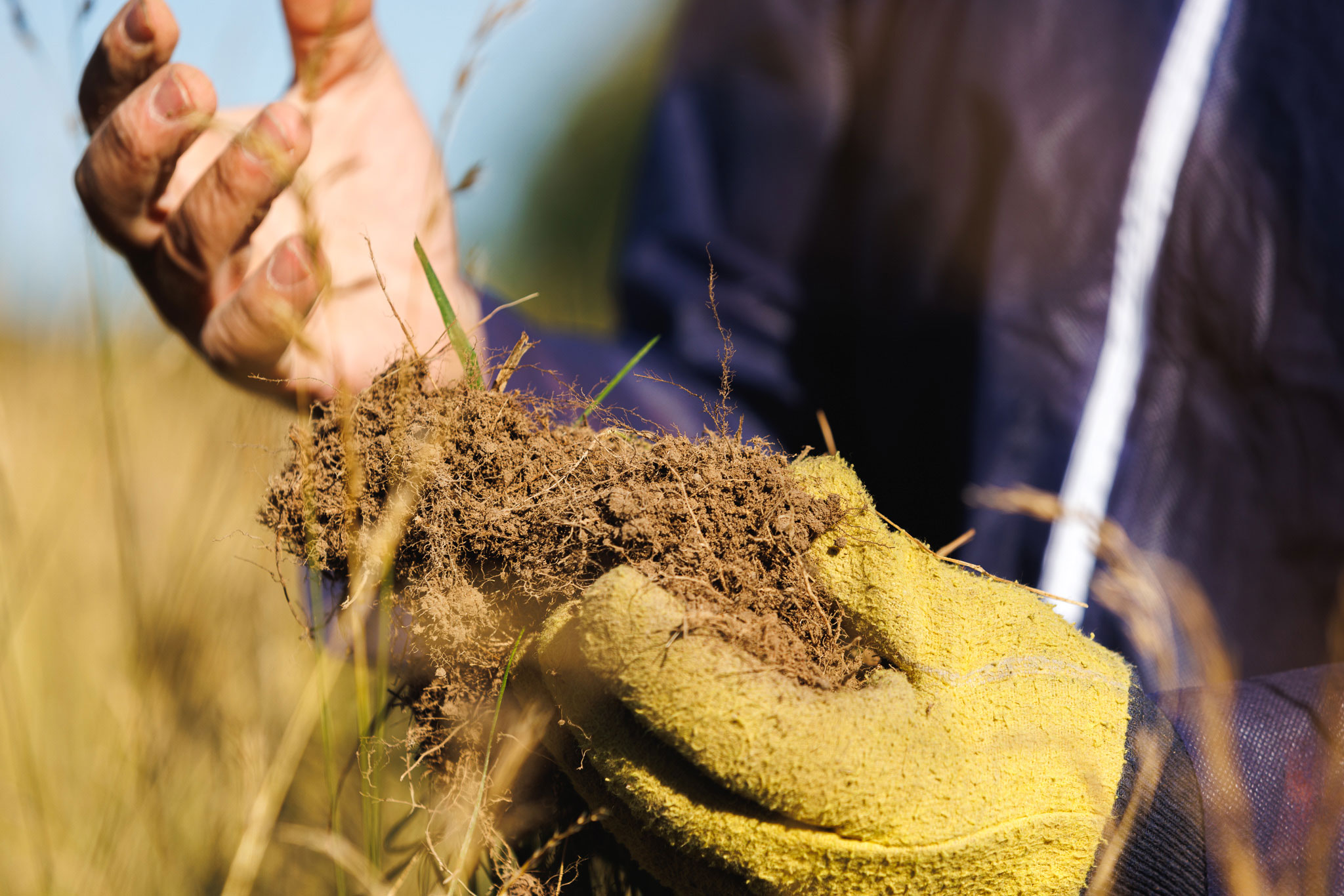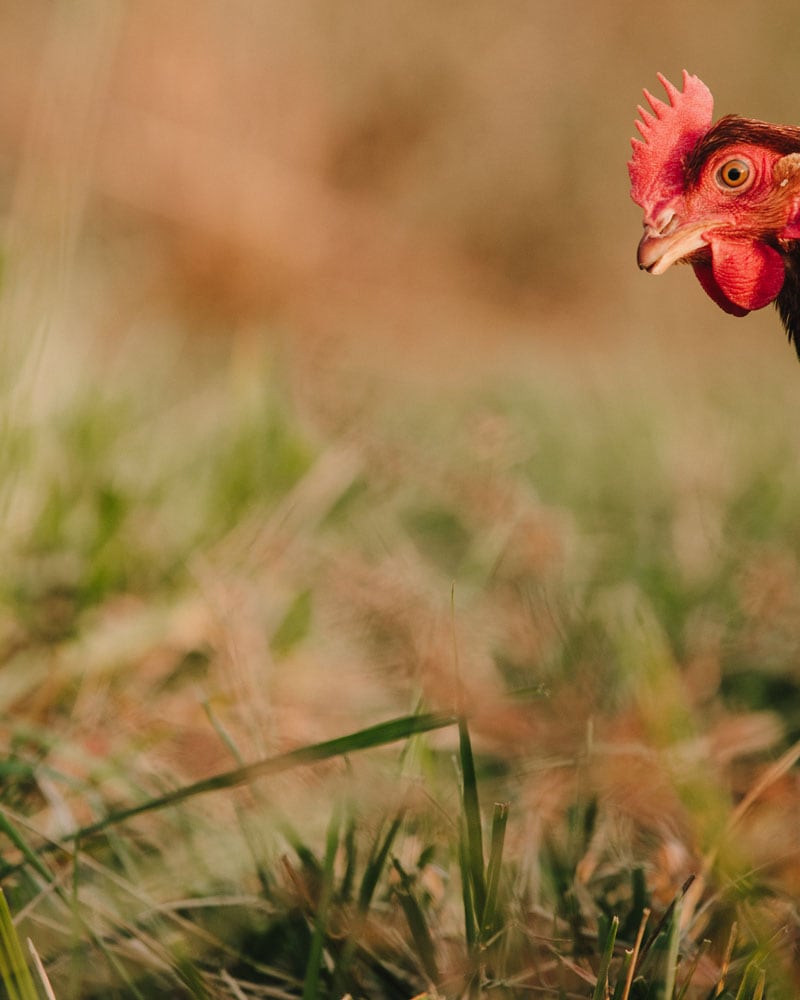
Raising the standards, Regeneratively
As pioneers of pasture-raised farming, we are excited to continue raising the standards one egg at a time. While all of the farms we work with already follow incredibly high standards, our approach to regenerative agriculture takes it to the next level. Vital Farms Restorative Eggs are also Pasture-Raised, USDA Certified Organic, and produced using regenerative farming practices. Scroll to dig deeper.
THE VITAL TENETS OF
RESTORATIVE FARMING
Farming
for the
Future
Regenerative practices can improve the land’s resiliency and the health of waterways. We are farming to try to leave the land better than we found it.
Animals & Soil
are better
together
We grow healthy animals and soil together — after all, grazing has been an essential component for all soils at one time or another. Many animals function as walking composters; dispersing seeds, suppressing pests, bringing biology and fertility back to the earth and helping till new soil.
Keep living
roots in
the soil
Roots from diverse cover crops feed soil microorganisms, which feed our plants. We let those roots stay in the soil to honor and encourage that cycle.
Mix it Up
Do you enjoy eating the same exact salad every day? Our soil doesn’t either! Our restorative farms are rife with a diversity of plants, microbes, insects, wildlife and livestock that help keep everything in balance.
Cover & build
surface
armor
Soil has an outer layer that helps ensure vital nutrients and water in the soil remain in the soil. Regenerative farming uses cover crops like rye and wheat to protect that “skin” and promote long-term soil health.

Certified By Regenified™
We’re excited to share that each of our 4 Restorative farms has been officially verified by Regenified, a third-party organization that verifies farms and certifies products. This certification is granted to entities that revitalize and restore ecosystem functions while regenerating the soil for future generations.
The regenerative verification speaks to years of ongoing work and dedication across our Restorative farms to implement and grow regenerative farming practices. It’s a testament to our commitment towards our mission of improving the lives of people, animals and the planet through food.
Through the Certified Regenified label and their proprietary 6-3-4™ Verification Standard, Regenified helps farmers in our supply chain understand where their practices and lands are on the regenerative path.
Meeting the Regenified Verification Standards means that our 4 Restorative farms must:
- Demonstrate regenerative practices and principles to advance biodiversity, soil health, water quality and nutrient density
- Maintain a regenerative management plan that has received approval from the Regenified review board
- Commit to measured outcomes and continual progress in regenerative practices year-over-year
- Participate in annual farm evaluations, as well as ongoing in-field and in-lab testing
Don’t Forget
Your Coupon
There’s so much to learn about navigating the egg aisle. Fortunately, the only thing you need to know right now is that you’re about to get $1.00 off a carton Vital Farms Resortative Eggs. Click below to claim your coupon!



